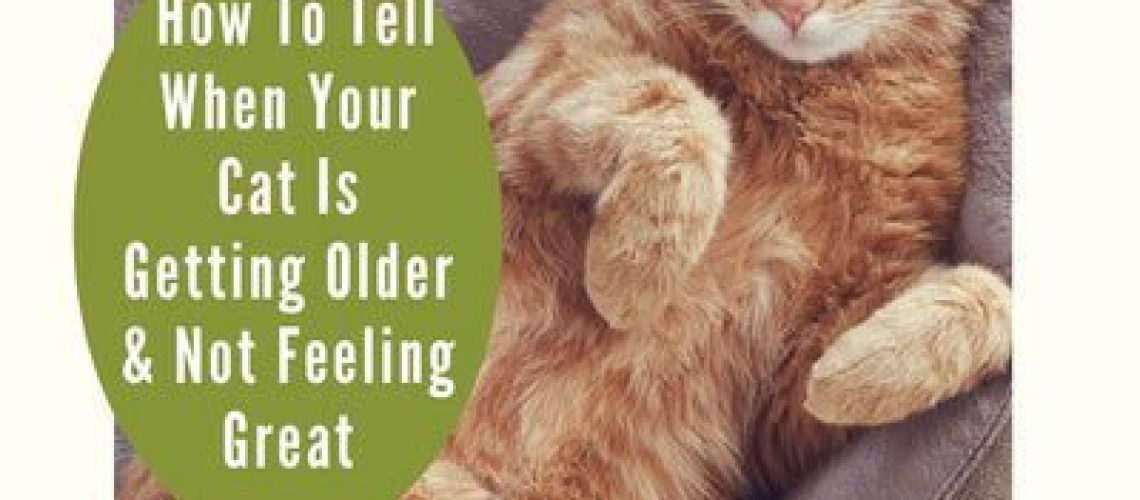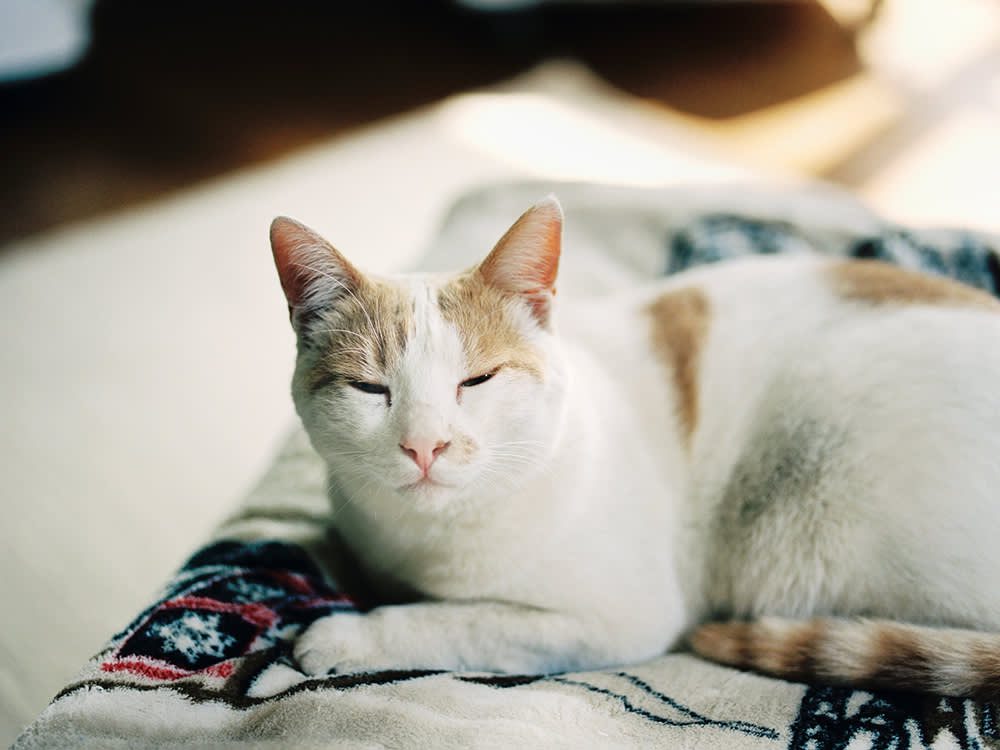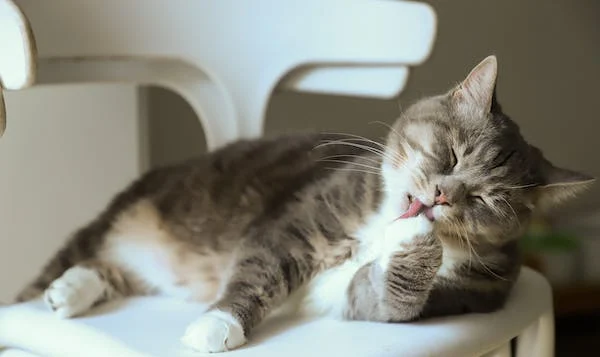Introduction:
Are you a cat lover? Do you want to ensure your furry friend lives a long and healthy life? If so, then understanding the signs of aging in cats is essential. As our beloved feline companions grow older, they require special care and attention to ensure their well-being. By delving into the topic of "Growing Gracefully: Signs of an Aging Cat," you will gain valuable insights that can help you provide the best possible care for your aging cat. Whether you're a seasoned cat owner or considering adopting an older cat, this knowledge will prove invaluable in ensuring a happy and comfortable life for your feline companion. So let's embark on this journey together and discover the secrets to helping our cats age gracefully!
Key Takeaways:
- As cats age, they may experience changes in their behavior and physical abilities.
- Regular veterinary check-ups are essential to monitor the health of an aging cat.
- Diet and nutrition play a crucial role in maintaining the overall well-being of an older cat.
- Providing a comfortable and safe environment can help an aging cat navigate their surroundings more easily.
- Giving extra attention and affection to an aging cat can help improve their quality of life and overall happiness.
Signs of Aging in Cats: What to Look For
As cats get older, they start showing signs that they are aging. These signs can vary from cat to cat, but there are some common things to look out for. One sign is changes in their appearance. Older cats may develop gray hairs or their fur may become dull and thin. They may also lose weight or have a harder time grooming themselves.
Another sign of aging in cats is changes in their behavior. They may become less active and spend more time sleeping. They might also become more irritable or less interested in playing. Some cats may even start meowing more often or forget where their litter box is.
If you notice any of these signs in your cat, it's important to take them to the vet for a check-up. The vet can help determine if these changes are just a normal part of aging or if there is an underlying health issue that needs to be addressed.
Changes in Behavior as Cats Age: What to Expect
Just like humans, cats' behavior can change as they get older. It's important for cat owners to understand these changes so they can provide the best care for their furry friends.
One common change in behavior is decreased activity levels. Older cats tend to sleep more and play less than when they were younger. This is completely normal and nothing to worry about as long as your cat still seems happy and healthy.
Another change you might notice is increased vocalization. Older cats may meow more often, especially at night. This could be due to various reasons such as discomfort or confusion. If your cat's meowing becomes excessive or bothersome, it's a good idea to consult with your vet.
Physical Changes in Aging Cats: What You Need to Know
As cats age, their bodies go through physical changes just like humans do. These changes can affect their appearance and overall health.
One common physical change in aging cats is the development of gray hairs. Just like humans, cats can get gray hair as they get older. This is completely normal and nothing to be concerned about.
Another physical change you might notice is weight loss. Older cats may lose muscle mass and become thinner. This can be due to a variety of factors such as a decrease in appetite or a slower metabolism. It's important to monitor your cat's weight and consult with your vet if you notice any significant changes.
Caring for Your Aging Cat: Tips for Health and Comfort
As your cat gets older, it's important to provide them with the care they need to stay healthy and comfortable. Here are some tips to help you care for your aging cat:
- Provide a warm and comfortable sleeping area for your cat, such as a cozy bed or blanket.
- Make sure your cat has easy access to food, water, and litter boxes. Older cats may have trouble jumping or climbing, so consider placing these essentials on the same level as your cat's favorite resting spots.
- Keep an eye on your cat's weight and adjust their diet if necessary. Older cats may require different types of food or smaller portions to maintain a healthy weight.
- Regularly groom your cat to keep their fur clean and free from mats. Older cats may have a harder time grooming themselves, so they may need some extra help from you.
- Provide mental stimulation for your cat through interactive toys or puzzle feeders. Keeping their minds active can help prevent boredom and cognitive decline.
- Schedule regular check-ups with your vet to monitor your cat's health and address any potential issues early on.
Dietary Needs of Older Cats: Special Considerations
As cats age, their dietary needs may change. It's important to provide them with the right nutrients to support their overall health and well-being.
One consideration is the protein content in their food. Older cats may require higher levels of protein to maintain muscle mass. Look for cat foods that are specifically formulated for senior cats and have a higher protein content.
Another consideration is hydration. Older cats may have a decreased thirst drive, so it's important to make sure they are drinking enough water. You can encourage water intake by providing multiple water bowls throughout the house or even using a cat fountain.
In addition, older cats may benefit from supplements such as omega-3 fatty acids or joint support supplements. These can help support joint health and cognitive function in aging cats.
Common Health Issues in Older Cats: What to Watch Out For
As cats age, they become more prone to certain health issues. It's important for cat owners to be aware of these common problems so they can provide appropriate care and seek veterinary help when needed.
One common health issue in older cats is arthritis. Arthritis causes inflammation in the joints and can lead to pain and mobility issues. If you notice that your cat is having trouble jumping or climbing stairs, it could be a sign of arthritis.
Kidney disease is another common problem in older cats. The kidneys play an important role in filtering waste products from the blood, and as they age, they may not function as efficiently. Symptoms of kidney disease include increased thirst, frequent urination, weight loss, and poor appetite.
Dental disease is also common in older cats. Tartar buildup, gum inflammation, and tooth decay can cause pain and discomfort. Regular dental care, including brushing your cat's teeth and providing dental treats or toys, can help prevent dental disease.
Veterinary Check-ups for Aging Cats: How Often is Necessary?
Regular veterinary check-ups are important for cats of all ages, but they become even more crucial as cats get older. These check-ups allow the vet to monitor your cat's health and catch any potential issues early on.
For aging cats, it's generally recommended to have a veterinary check-up at least once a year. However, depending on your cat's specific health needs and any pre-existing conditions, your vet may recommend more frequent visits.
During these check-ups, the vet will perform a physical examination, assess your cat's weight and body condition, check their teeth and gums, and may recommend additional tests such as blood work or urinalysis to screen for any underlying health problems.
The Benefits of Exercise for Aging Cats: How Much is Enough?
Exercise is important for cats of all ages, including older cats. Regular exercise can help keep them physically fit and mentally stimulated. However, the amount of exercise needed for an aging cat may be different compared to when they were younger.
Aging cats may not have the same energy levels as before and may tire more easily. It's important to provide them with opportunities for exercise that are appropriate for their age and fitness level.
Interactive toys that encourage movement or short play sessions can be beneficial for keeping your aging cat active. However, it's important to pay attention to their cues and not overexert them. If you notice that your cat is becoming tired or showing signs of discomfort during exercise, it's best to take a break and let them rest.
Creating a Safe Environment for Your Elderly Cat at Home: Important Considerations
As your cat gets older, it's important to create a safe environment for them at home. Older cats may have more difficulty with mobility and balance, so taking some precautions can help prevent accidents and injuries.
One consideration is providing easy access to essential areas such as food, water, and litter boxes. Placing these items on the same level as your cat's favorite resting spots can make it easier for them to reach without having to climb or jump.
You can also provide additional support by using ramps or steps to help your cat navigate higher surfaces such as beds or couches. This can reduce the risk of falls or injuries.
Another consideration is removing any potential hazards from your cat's environment. This includes keeping toxic plants out of reach, securing loose cords or wires that could be chewed on, and ensuring that there are no small objects that could be swallowed.
In conclusion, as cats age, they may show signs such as decreased energy, changes in appetite, and more frequent trips to the vet. It is important for cat owners to be aware of these signs and provide their aging feline friends with the care and attention they need to live a happy and comfortable life.
What are the signs of old age in a cat?
As cats age, they typically become less active and playful, may sleep more, experience weight gain or loss, and might have difficulty accessing their usual spots. However, it is important not to simply attribute any changes in health or behavior, which often occur gradually, solely to old age.
What are 4 signs your cat is suffering?
Signs that a cat is in pain include a decrease in interest in activities such as playing, socializing, and exploring outside. They may also become withdrawn and hide away. Additionally, they may appear to be walking with a limp and show increased sensitivity to touch in certain areas of their body. Another indication of pain is a decrease in movement and overall activity.
Will my cat get nicer as it gets older?
While it is true that some cats become more affectionate as they get older, this is not the case for all cats and can be influenced by factors like their personality, environment, breed, and more. Additionally, aging can lead to physical changes that often result in decreased activity and playfulness in cats.
What is the average lifespan of an indoor cat?
The average lifespan of an indoor cat is between 13 and 17 years, although some cats live shorter lives and others can live well into their 20s. There have even been cases, like Crème Puff, where a cat lived to be 38 years old! Cats tend to be stoic and won't express discomfort when they are not feeling well.
What is the average lifespan of a cat indoors?
Indoor cats typically have a lifespan of 12-18 years, with some living into their early 20s. The oldest recorded cat, Creme Puff, lived an impressive 38 years. Outdoor cats, on the other hand, tend to have shorter lives due to the higher risk of accidents such as being hit by a car or attacked by dogs.
Why is my senior cat suddenly clingy?
Old age or health problems can cause a cat to become more attached to its owner. As a cat gets older and feels more vulnerable, it may rely on its owner for support. With declining senses, such as impaired vision or hearing, the cat may seek assistance from its owner to navigate its surroundings.

















